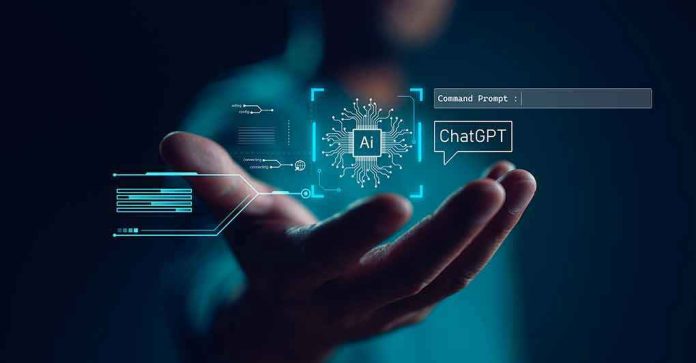
Your private conversations with ChatGPT are now being weaponized against Americans in courtrooms, shattering any illusion of digital privacy under the Biden administration’s surveillance state.
Story Highlights
- ChatGPT conversations lack legal privilege and can be subpoenaed as court evidence
- Missouri student criminally charged after AI confession discovered by authorities
- Federal court orders OpenAI to preserve all user chat logs for legal proceedings
- OpenAI CEO warns users their conversations are not confidential or protected
Digital Privacy Evaporates Under Legal Scrutiny
Americans believing their ChatGPT conversations remain private face a harsh reality check as courts nationwide treat AI chat logs as admissible evidence. OpenAI CEO Sam Altman explicitly warned users that conversations with ChatGPT carry no legal privilege or confidentiality protections. Unlike communications with lawyers, doctors, or therapists, AI interactions can be subpoenaed, seized, and used against individuals in criminal and civil proceedings, fundamentally undermining digital privacy expectations.
The legal system’s aggressive approach to AI chat logs represents a dangerous expansion of surveillance capabilities. Federal courts have ordered OpenAI to preserve all user conversations in major litigation cases, treating private AI interactions as discoverable evidence. This judicial overreach transforms personal AI consultations into potential self-incrimination tools, violating the spirit of constitutional protections against unreasonable searches and digital privacy rights.
Real-World Consequences Emerge in Criminal Cases
A Missouri State University student faced criminal charges in October 2025 after authorities discovered and used his ChatGPT confession as evidence against him. This landmark case demonstrates how AI conversations can directly lead to prosecution, establishing a troubling precedent for law enforcement surveillance. The incident proves that sharing sensitive information with AI platforms creates permanent digital records that prosecutors can weaponize against unsuspecting Americans.
International courts have begun accepting AI chat logs while rejecting AI-generated content as unreliable, creating a selective enforcement pattern. Czech courts examined chat logs for user intent while dismissing ChatGPT’s actual responses as factual evidence. This inconsistent approach allows authorities to cherry-pick incriminating user statements while ignoring potentially exculpatory AI responses, creating an unfair legal double standard that favors prosecution.
Constitutional Rights Under Digital Assault
The erosion of AI privacy protections represents a broader assault on constitutional rights in the digital age. Unlike traditional confidential relationships protected by law, AI platforms operate without privilege, leaving users vulnerable to government surveillance and legal exploitation. This fundamental lack of protection undermines Fourth and Fifth Amendment safeguards, creating a surveillance state where private thoughts and concerns become evidence against citizens.
Legal experts warn that current AI chat log policies create a chilling effect on legitimate use of technology for personal guidance and support. The absence of confidentiality protections discourages Americans from seeking help through AI platforms for sensitive issues, effectively limiting access to technological resources. This government overreach into private digital communications threatens individual liberty and creates new pathways for prosecutorial abuse against law-abiding citizens seeking assistance.
Sources:
ChatGPT conversations as courtroom evidence: Legal realities and ethical reflections
ChatGPT confession privacy evidence risks
Think before you ask: Why ChatGPT legal queries can be used against you as court evidence





